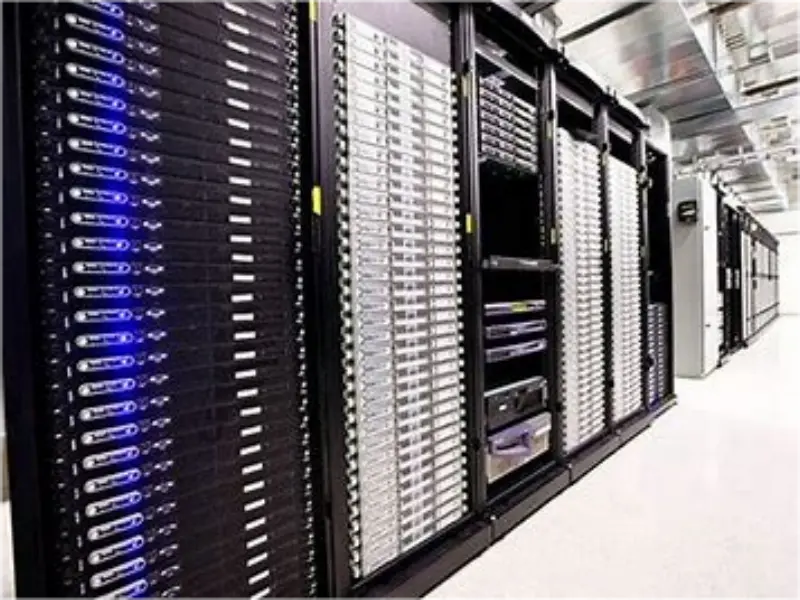- Server colocation allows organisations to save on the capital expenditure of building and maintaining data centres.
- Data centres designed for colocation offer high levels of uptime through redundant systems and backup power solutions.
- The colocation sector is evolving with trends such as hybrid cloud solutions and the integration of AI technologies, which promise improved operational efficiencies.
Server colocation is a strategic IT management approach whereby organisations host their server hardware in a third-party data centre. This arrangement allows organisations to benefit from the advanced infrastructure of these facilities without the high costs associated with building and maintaining their own data centres.
The server colocation sector has seen significant growth due to increasing data requirements and the push towards digital transformation across industries. As businesses generate more data and require higher levels of data processing and security, the demand for reliable and scalable IT infrastructure solutions such as colocation continues to grow.
What is server colocation
Server colocation is where an organisation houses its servers in a managed service facility, also known as a data centre. Unlike traditional web hosting, in server colocation the server hardware is owned by the customer rather than the hosting provider. This arrangement allows organisations to benefit from high-end data centre infrastructure without the high costs associated with owning and maintaining such a facility.
How server colocation works
Choosing a provider: Enterprises first evaluate potential colocation providers based on the critical factors of location, bandwidth, power redundancy, security features and cost. Proximity to the company’s main operations can reduce latency and facilitate physical access to hardware.
Contract and set up: Once a suitable provider has been selected, the business enters into a service agreement detailing the terms of the space rental and the level of support services provided.
Installation: The business then installs its servers and associated networking equipment in the leased space at the provider’s facility. This is usually done by the company’s IT staff, although some colocation providers offer installation assistance as part of their services.
Management and monitoring: While physical security, power and cooling are managed by the colocation provider, the business retains control of the server software and operations. The business can remotely manage and monitor its systems and, depending on the level of service purchased.
Ongoing operations and upgrades: Businesses have the flexibility to upgrade hardware or scale their operations by leasing additional space or services as needed. Colocation facilities are designed to provide the scalability that is critical for growing businesses.
Also read: Data centre operator Equinix plans $2B sale of Hong Kong stake
The benefits of server colocation
Cost efficiency: By sharing infrastructure costs with other tenants, organisations can save on the capital expenditure of building and maintaining data centre facilities.
Reliability: Data centres are designed to provide high levels of uptime through redundant systems and backup power solutions.
Scalability: Businesses can easily scale their IT infrastructure up or down by leasing more or less space without having to invest in new construction or facility upgrades.
Also read: Data centre power demand pushes NextEra to big quarter
Business use cases for server colocation
Tech startups and small to medium enterprises (SMEs): For start-ups and SMEs, colocation is a cost-effective way to get high-quality IT infrastructure without the capital expenditure. It allows these smaller businesses to focus their resources on innovation and growth, while ensuring their IT operations are backed by enterprise-grade facilities.
Large enterprises with disaster recovery requirements: Large enterprises often use colocation as part of their disaster recovery (DR) strategies. By colocating servers in geographically diverse data centres, companies can ensure business continuity in the event of a disaster or system failure in one location.
Data-intensive industries: Businesses in sectors such as finance, healthcare and e-commerce that manage large amounts of sensitive data can benefit from the enhanced security and compliance features offered by colocation centres.
Global businesses looking to reduce latency: For businesses with a global presence, colocating servers closer to their user base can significantly reduce latency and improve service speed. This is particularly important for businesses offering online services that require fast, real-time data processing.
Businesses scaling operations: Businesses experiencing rapid growth often find that colocation is an effective way to scale their IT infrastructure. Colocation facilities can quickly accommodate increases in server capacity, bandwidth and additional services, making it easier for businesses to expand as their needs evolve.

